Daniel Sherrier's Blog, page 3
March 28, 2020
‘The Flying Woman’ now on Kindle Unlimited
I’ve bent the knee to Amazon, which means Kindle Unlimited subscribers can now read The Flying Woman at no extra charge.
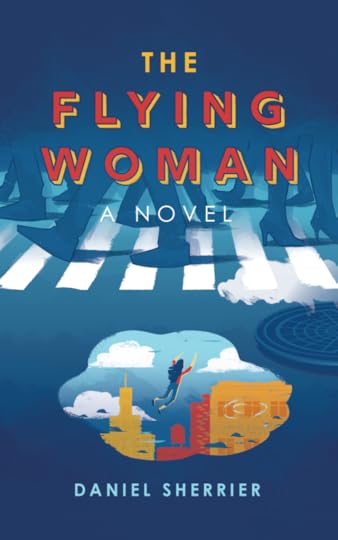
Also, for a limited time, Kindle readers can purchase the ebook at a discounted price. It’s currently down to 99 cents, but it will gradually rise back up to the full $3.99. So, now’s the perfect time to take a chance on a new superhero.
Thank you to everyone who’s read The Flying Woman so far. If you enjoyed it, please consider leaving a review on Amazon or Goodreads. In any event, I greatly appreciate everyone who takes the time to read it.
A bit about the book:
The impossible has become reality! A masked man possesses extraordinary powers, and he’s using those fantastic abilities to fight crime and pursue justice. Meanwhile, Miranda Thomas expects to fail at the only thing she ever wanted to do: become a famous star of the stage and screen. One night, Miranda encounters a woman who’s more than human. But this powerful woman is dying, fatally wounded by an unknown assailant. Miranda’s next decision propels her life in a new direction—and nothing can prepare her for how she, and the world, will change.
March 22, 2020
A dramatic reading of “The Book With No Pictures”
One of my favorite (non-) picture books is The Book With No Pictures by B.J. Novak. It’s written to be performed, and I’ve enjoyed reading it to my nieces’ classes. Kids seem to love it, too, and small children seldom humor us with polite laughter.
So, while so many of us are stuck at home, here’s my dramatic reading of this fine piece of children’s literature.
If you enjoy the book, consider ordering a copy for your family.
February 17, 2020
Rethinking Game of Thrones
I’m very much behind on this one, but I’m currently reading
the Game of Thrones books (or should I say the Song of Fire and Ice
books?). I started the first novel several years ago and read a little over a
hundred pages, but it wasn’t grabbing me. So, I left the bookmark in, put it
back on my shelf, and moved on to other books.
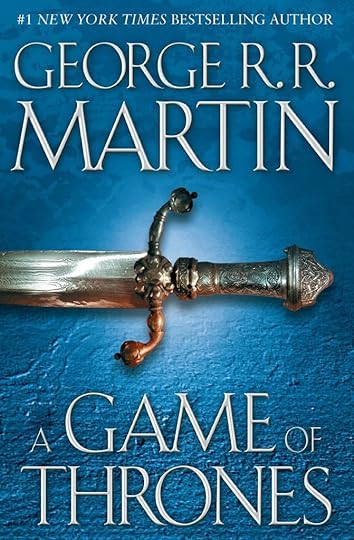
On a whim recently, I decided to give George R. R. Martin’s
series another chance. I just picked up where I left off, and this time I found
myself appreciating how well done it is, and how engrossing. I’m about halfway
through the third book, A Storm of Swords.
(And I’ve watched the first two seasons of the HBO series,
but the books come first … until the series runs out of book source material,
of course.)
I love the technique of alternating POV characters. The
world-building is extraordinary; it’s almost like a historically plausible
fantasy epic, and the gradual introduction of those fantasy elements is
intriguing. More important, the characters remain grounded in humanity, for
good and for bad. And Arya Stark is quite possibly the greatest child character
created for an adult series.
It’s not a perfect series, of course (what is?). The second
book, A Clash of Kings, while still very good overall, drags a bit too
much at times. Personally, I could do with fewer sex scenes (and less nudity in
the TV series). And never mind all the blood and guts—the incest is what’s
truly disgusting. This is not a fantasy world I’d want to live in.
So, I’m certainly not a hardcore GoT fan at this
point. Nevertheless, I finally see what so many others have seen in it all this
time.
This is why I don’t like to bash books that aren’t working
for me. In some cases, it might actually be just a bad book, but it could also
be that it simply didn’t work for me at that point in time. I could have been
in the wrong mood or the wrong frame of mind, or perhaps its flaws just bugged
me more than others. No book is perfect. No book is beyond criticism. At the
same time, a book that’s deeply flawed may still resonate with some people.
We’re not smarter just because we hate what everyone else
loves or love what everyone else hates. There are certainly well-established
principles of storytelling that are worth paying attention to. Ultimately,
though, reading is a subjective experience.
I started reading Game of Thrones and didn’t like it. I resumed reading Game of Thrones and am enjoying the series. Which me is correct?
January 29, 2020
So here’s why I write…
I recently reread George Orwell’s famous essay, “Why I
Write.” In it, he ascribes four primary motives to writers: egoism, aesthetic enthusiasm,
historical impulse, and political purpose. Different writers will feel a
stronger pull from one or two than the others, and the precise balance might shift
over a lifetime, but those four motives drive much of the prose that exists and
will exist throughout the world. I’d be lying if I claimed immunity.
Looking at my superhero novel The Flying Woman, I can
see those four motives playing roles of varying sizes.
Ego certainly factors into the equation. I would like to
think otherwise, but that would be self-delusion. There’s a line in the musical
Hamilton that goes, “God help and forgive me, I want to build something
that’s gonna outlive me.” And yes, I’d like that, too. I won’t live forever,
and I can’t take any books with me, but I can leave them behind and hope they
endure.
Along those lines, I also wanted to write the best superhero
novel ever. There are certainly many good and even great superhero prose novels
out there, but which has the reputation as being the pinnacle of the genre in
this medium? I’m not saying I succeeded—that’s ultimately up to the readers,
not the writer. But after a lifetime of reading superhero comics, I wanted to
put my own stamp on the genre.
Aesthetic enthusiasm is more a motivation for editing than
writing, but I do certainly appreciate aesthetics and value their importance.
I’m happy to take the time to ensure the correct word is always in the correct
place, and unbroken walls of text often look plain ugly. Dialogue must always
“sound” right and flow with a natural rhythm.
So there’s some aesthetic enthusiasm in the mix, but I
wouldn’t call it my reason for writing in the first place.
When I was a newspaper reporter, the historical impulse was
by far my strongest motive for that particular type of writing. My job was to
present people and events as they were, and to provide readers with enough
information to help them form their own conclusions. It was never my place to
tell them what to think.
With fiction, and especially superhero fantasy fiction, I’m
obviously not presenting factual accounts or even slice-of-life drama. But I do
strive to present human nature as it is—the good, the bad, and the ugly. And
stories of superheroes and supervillains can tell us quite a bit about
ourselves. It’s no surprise that superhero origin stories are often great
coming-of-age stories, too.
In The Flying Woman, a young woman acquires powers
she never expected, and she has to figure out how to become this perfect
superhero even though she knows she’s nowhere near perfect. Effectively, she
has to figure out how to become the adult she needs to be. The development of a
superhero, then, is another way to show how a person matures.
So maybe that’s not quite a “historical” impulse, but it’s
adjacent.
And then there’s political purpose. I generally steer clear
of this, as I believe partisan politics and fiction don’t mix (though perhaps
that is a type of a political opinion).
Writing a female superhero lead might get me involved in current issues of representation in entertainment. Maybe I’m just looking through rose-colored glasses thanks to a youth of reading X-Men and watching Star Trek, but to me, a female superhero already seemed every bit as natural as a male superhero. As I type that, I worry that I sound like I’m pandering, when that’s the last thing I want to do.
In my mind, the way to reduce any disparities in
representation is simply by writing (for example) a female lead in a
matter-of-fact way, without any overt agenda. I wrote Miranda as a person first
and foremost, not a “strong female superhero protagonist.” I focused less on
issues that are unique to women today and more on issues that are common to
both men and women—fear of failure, accepting responsibility, new
responsibilities conflicting with previous ambitions, striving to live up to
others’ expectations, and so on—the universal, timeless issues where we can
find common ground, not the contemporary identity politics that can divide us …
the broader human nature that I mentioned earlier.
So I wrote a non-political female superhero. The statement
is that it shouldn’t be a statement. Is that political in a roundabout way?
Anti-politics as a type of politics? I’ll let others decide.
That wraps up Orwell’s four motives, but I’ll add one of my
own: the joy of creation, of building something new.
Sure, I’ve drawn on elements already present in the
culture—established conventions of the superhero genre, themes others have
previously tackled, tried-and-true plot structure, and so on. But I assembled
those pieces in my own unique way, to create something that only I would have
created.
There’s nothing like that thrill, though maybe this is just another form of egoism. Who am I to argue with Orwell?
Originally posted at Silver Dagger Book Tours.
January 12, 2020
Sequel: The Sequel
I encountered an unexpected obstacle while working on the
sequel to The Flying Woman. After months of writing and revising, I
realized I was actually working on the third book in the series. Unfortunately,
math tells us that among the second and third books, the second should come
first.
The main issue was that I jumped too far ahead in time,
inadvertently skipping much of Miranda’s development as a superhero. The first
book is all about accepting the responsibility and building the superhero
persona, but how does she get good at it? How does a superhero receive training
when she’s one of her world’s first ever?
That gave me a way in to an actual second book. I don’t have a title yet, but I’ve got the premise locked down. Describing the premise in too much detail would risk spoiling the first book (which you should of course read first), but it involves a superhero/fantasy genre mash-up.
There’s an old comic book trope in which the superhero gets
sucked into another world, dimension, or reality and gets involved in whatever
conflict is going on there. The superhero figures out who the good guys are,
helps them out, and eventually finds a way home. It’s not my favorite trope,
but the reasons for my ambivalence showed me how to make it work for my story.
In the comics, especially in the ’60s and ’70s, these outings would often feel inconsequential. Yeah, it might be fun to see a familiar character navigating an unfamiliar environment, but these issues tended to feel like a break from the main storylines, the superhero equivalent of a vacation. Then the main character would return home, and that would be that.
The concept fits perfectly in the Voyage and Return plot type, in which “[t]he protagonist goes to a strange land and, after overcoming the threats it poses or learning important lessons unique to that location, they return with experience.” In the old-school comics, though, the superhero didn’t always come away with any lasting lessons.
Experiences in far-off lands should leave indelible marks, especially on a young superhero who’s still trying to figure it all out. And thus I have my second book.
Admittedly, this puts me a bit behind schedule. However,
I’ll be ahead when it’s time to resume work on the third book (unless I realize
the third is actually the fourth).
My goal is to have the second book out this fall, though
it’s too soon to promise that. I’d rather take extra time to get it right than
put out something below par.
So in the meantime, continue to enjoy The Flying Woman.
July 18, 2019
‘The Flying Woman’ soars as a Book Excellence Award Finalist!
I’m thrilled to announce that I have been recognized as a Book Excellence Award Finalist for my novel, The Flying Woman, in the Fantasy category.
To toot my own horn, my book was selected based on criteria such as writing, design, and market appeal.
To see me listed among the finalists, please go here.
Released last fall, The Flying Woman adapts the superhero genre for the novel medium. The story follows a young woman learning to accept a responsibility far greater than anything she ever contemplated. It’s an entertaining time for superhero fans, whether in middle school or middle age.
And work on a sequel, The Silver Stranger, is under way!
Join the fun by getting your own copy of The Flying Woman here.
April 21, 2019
Upcoming events
I’ll be at three thrilling events in the near future. If you’re nearby, come check it/them out!
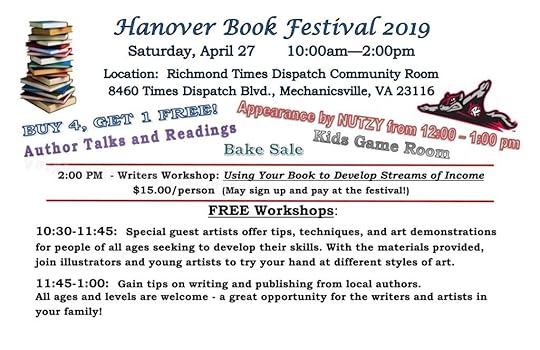
The Hanover Book Festival — Saturday, April 27, 10 a.m. to 2 p.m. at the Richmond Times-Dispatch Building in Mechanicsville, Virginia. Come meet a bunch of Virginia authors!
Hayfield Comic Con — Saturday, May 4, 10 a.m. to 4 p.m. at Hayfield Secondary School in Alexandria, Virginia. The students are organizing this event, and they’ve got some fun events lined up, including an Escape Room. Plus, this will be an excellent place to celebrate Free Comic Book Day!
GalaxyCon Richmond — May 31 to June 2 at the Richmond Convention Center. I will truly be a very small fish in a huge pond here, but I will have a table, so come say hello!
April 3, 2019
Help me support the 2019 Walk to Cure Arthritis
One in four Americans have arthritis, and this number includes about 300,000 children, according to the Arthritis Foundation.
The 2019 Walk to Cure Arthritis is taking place in Richmond, Virginia, on Saturday, April 27. I encourage everyone to follow the link and make a donation.
I’ll be donating, and on top of what I already intend to donate, I’ll also donate all book and ebook royalties I earn today, Wednesday, April 3. (This is a personal promise from me, and only I am responsible for it. No other person or entity is responsible except me.)
So, please consider making a direct donation via the above link, and that would be wonderful. Or buy any of my books today, April 3, to increase the amount that I will donate. Or do both!
Thank you!
March 23, 2019
Up next …
The Flying Woman came out about five months ago now, and thank you to all who read it, are reading it, or will read it. In the meantime, I’ve been hard at work on the sequel.
I’m not nearly done yet. I’ve got maybe two-thirds of the first draft written, and I have the rest plotted out, but plenty of work remains ahead.
Nevertheless, I thought I’d share the title. So here’s what appears when I open the manuscript’s Word doc:
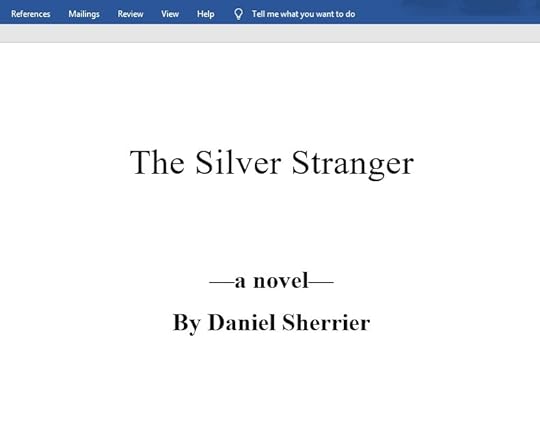
More details on The Silver Stranger will follow in the coming months.
For now, if you’ve read and enjoyed The Flying Woman, please tell your friends, and that will help The Silver Stranger materialize faster.
I always appreciate everyone’s support.
December 30, 2018
The Best Books I Read in 2018
I read many good books this year, and I’ll read many more in the new year. Here are the best I came across in 2018:
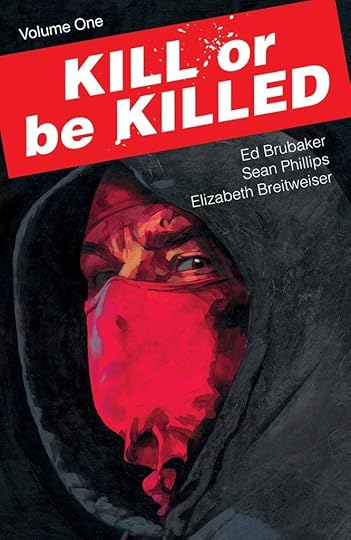
5) Kill or Be Killed vol. 1-4 by Ed Brubaker, Sean Phillips, and Elizabeth Breitweiser (graphic novel) – A compelling, grounded take on the vigilante concept by a creative team that always delivers. The ambiguity surrounding the main character’s condition elevates it even further.
4) A Collection of Essays by George Orwell (nonfiction) – Insightful essays covering a delightful mix of topics, by one of the great thinkers of the twentieth century. His thoughts on Charles Dickens are just as intriguing as his thoughts on comic postcards.
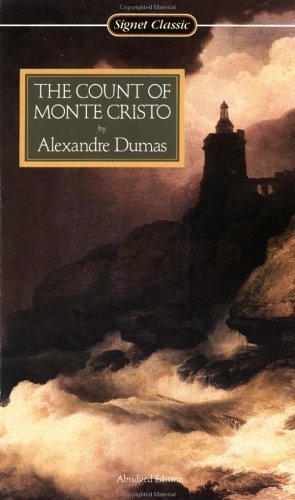
3) The Count of Monte Cristo by Alexandre Dumas (fiction) – I hadn’t read this since high school, and I appreciated it much more after reading it voluntarily as an adult. A wronged man reinvents himself and patiently pursues his revenge in this exciting, enduring classic.
2) Grant by Ron Chernow (nonfiction) – At this point, if Chernow writes a comprehensive single-volume biography of an important American figure, I’m in. His thorough biography on Ulysses Grant is right up there with his excellent books on Hamilton and Washington.
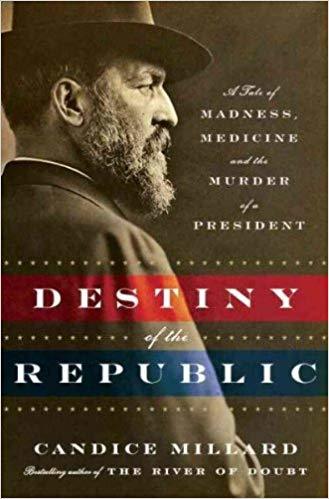
1) Destiny of the Republic: A Tale of Madness, Medicine and the Murder of a President by Candice Millard (nonfiction) – Millard covers the assassination of President James A. Garfield and everything around it, putting together a rich tapestry of history that also includes the origins of a deranged shooter, doctors’ reluctance to embrace antiseptic practices, the redemption of VP-turned-President Chester Arthur, and much more. It could make a fantastic TV miniseries, but it’s already a superb book.



